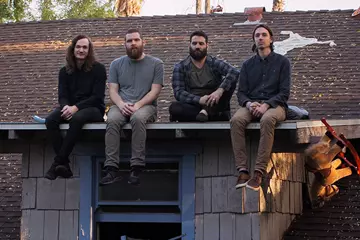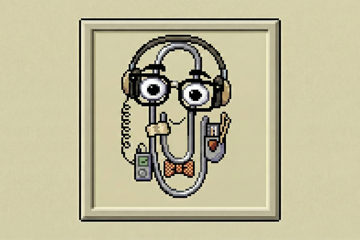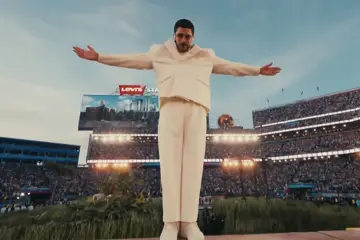 Brother Ali
Brother AliBrother Ali is nothing if not versatile, balancing his concurrent roles as a renowned hip hop artist, activist and spiritual thinker with a calm aplomb. The Minneapolis-based artist lived a comparatively challenging upbringing — he was born with albinism and is legally blind, traits which led to cruelty from unempathetic classmates — but discovered his beloved hip hop culture at an early age, making music something of a personal sanctuary. He's subsequently spent his career spreading the doctrines of truth and justice, and it's these same tenets which are going to provide the crux of his inaugural BIGSOUND keynote speech.
"I think that we're all experts in our experience," Brother Ali explains. "We're all experts in the tyranny that life has given us and they way that we've navigated it. So the themes that tend to come together in my music are about hip hop as global youth culture, and the messages of hip hop and also the reality that Islam is its unofficial religion. I'll definitely talk about hip hop as global youth culture and the voice of voiceless oppressed people, and the way that hip hop has been manipulated in systems of domination to serve those systems. So hip hop is something that was created by black and Puerto Rican people in the South Bronx in New York in the '70s, and it originally rose up to really create a voice and a freedom of expression space for those communities. But there was a time when the business community, the corporations and the government really conspired to turn mainstream hip hop into a force that perpetuates white supremacy, perpetuates misogyny, perpetuates individualism, consumerism, hyper-capitalism and all that kind of stuff. Those were not things that the hip hop community did, these are things that the dominant culture transformed hip hop into.
"The spirituality and entrepreneurship and really the spirit of hip hop is black American Islam."
"[I'm also hoping to] to address the overlap with Islam. Because if hip hop is global youth culture and the culture and expression of oppressed people, Islam also really speaks to oppressed people and there's a definite link that I think a lot of people, nowadays especially, are not aware of. There are really interesting manifestations of this in the States, as the spirituality and entrepreneurship and really the spirit of hip hop is black American Islam. These are things that America and Europe and Australia are really kind of wrestling with, because Islam is the fastest growing religion in the world and it's the religion of justice and freedom from oppression — it's not seen that way by the West, but it's absolutely seen that way by oppressed, marginalised, voiceless people."
There's certainly an apparent schism between the religions and cultures that's broadening rather than narrowing in these troubling times.
"Not so much between the religions, more so between Islam and post-Christian modernity, western modernity," Brother Ali continues. "I think that there are devout Christians, there's just not that many of them left in the West. I think that Western modernity is anti-traditionalist and very reductionist, and I think it sees itself as having evolved past religion, whereas traditionalist societies view themselves as wanting to submit to God and align themselves with the creator. I think that's more the misunderstanding between the two, and honestly I think that Islam is very misunderstood by Muslims and non-Muslims alike. The West really funded and selected a particular type of Islam, the same way that they did with hip hop."
Don't miss a beat with our FREE daily newsletter
Fortunately, Brother Ali is firm in his conviction that it's possible to usher in change via music, even if it's just making people address and think about important issues.
"It's absolutely possible, and modern global dominator culture really depends on people being really hyper-individualistic and very greedy and really all about the ego and serving the base desires and primal instincts and passions within people," he espouses. "Whereas music at its best connects people and fills people with love, it makes people hopeful and makes them want to reach out to others, it builds bonds between people. And spirituality and religion at its best does that too.
"Hip hop's culture is based on when Afrika Bambaataa founded the idea of hip hop and brought together these principles; peace, love, unity, having fun, freedom, justice, equality. These were the founding tenets of hip hop. Islam is based on there being one creator and one humanity and everyone in creation — all the human beings — are the children of Adam. They don't believe in original sin, they believe in original excellence and that every human being has a level of dignity just by virtue of being human, and all of these things have an origin and a connectivity and the distortion of them hurts that or results in a bastardised version of that. But I definitely think that music can be and is a healing force when it's done with the right intent."















